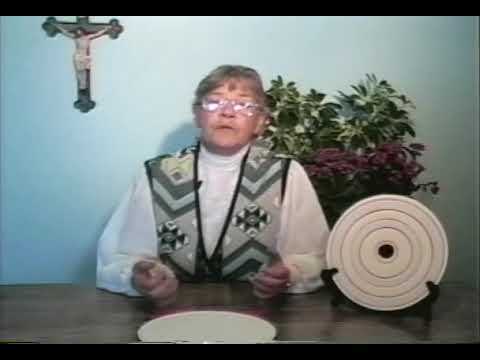BERNADETTE ROBERTS
The moment was unheralded, unrecognized, and unknown; it was the moment “I” entered a great silence and never returned. Beyond the threshold of the known, the door upon self was closed, but the door upon the Unknown was opened in a fixed gaze that could not look away. Impossible to see the self, to remember the self, or to be self-consciousness, the mind was restricted to the present moment. The more it tried to reflect back on itself, the more overpowering the silence.
By steadily gazing outward upon the Unknown, the silence abated and the emptiness of self became a joy. But the search for the still-point–God within–revealed not one emptiness, but two, for when there is no self, there is no Other; without a personal self there is no personal God–without a subject, there is no object.
The still-point had vanished, and with its disappearance it took very sense of life the self possessed–a self which could no longer be felt to exist. What remained was not known. There was no life, no will, no energy, no feelings, no experiences, no within, no spiritual or psychic life. Yet, life was somewhere because all was as usual.
Though it could not be localized or found within any object of sight or mind, somewhere out-of-doors, life was flowing peacefully, assuredly. On a bluff above the sea, it revealed itself: life is not in anything; rather, all things are in life. The many are immersed in the One, even that which remains when there is no self, this too, is absorbed in the One. No longer a distance between self and the other, all is now known in the immediacy of this identity.
Particulars dissolve into the One; individual objects give way to reveal that which is the same throughout all variety and multiplicity. To see this new dimension of life is the gift of amazing glasses through which God may be seen everywhere. Truly, God is all that exists–all, of course, but the self.
At one time, the Oneness grew to an overpowering intensity, as if drawing itself together from all parts, drawing inward and obliterating all that existed, including the eye that saw it and that which remained. At the threshold of extinction, the eye flickered and grew dim; instantly, that which remained, turned away.
To bear the vision, to enter in, the light of the eye must not go out. Somehow it must become stronger, but what kind of strength is this and how could it be acquired? There was something still to be done, but what? No-self is helpless; it has no strength; it is not the light of the eye nor the eye itself.
Nine months passed before the eye upon Oneness became the eye upon nothingness. Without warning or reason, all particulars dissolved into emptiness. At one point, the mind came upon the hideous void of life, the insidious nothingness of death and decay strangling life from every object or sight.
Only self can escape such a vision because only self knows fear, and only fear can generate the weapons of defense. Without a self, the only escape is no escape; the void must be faced–come what may.
In the absence of self, all that remained was an immovable stillness, an unbreakable, unfeeling silence.
Excerpted from the book Mystics, Masters, Saints and Sages by Robert Ullman and Judyth Reichenberg-Ullman. Bernadette Roberts (1931–2017) was a former Carmelite nun and contemplative in the Catholic tradition.







